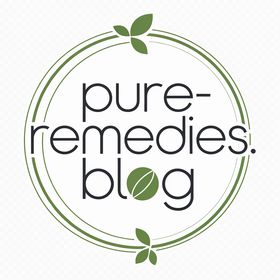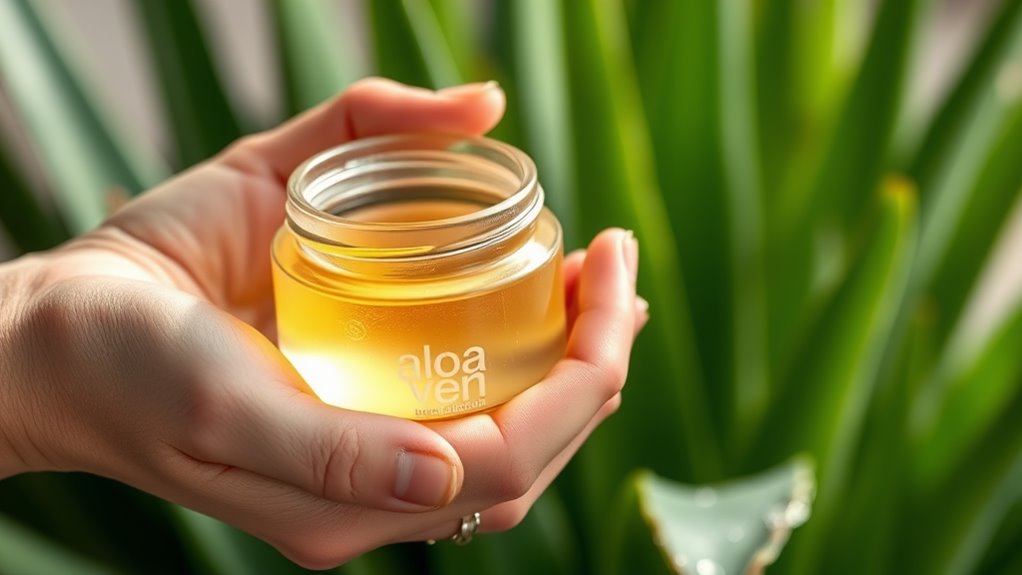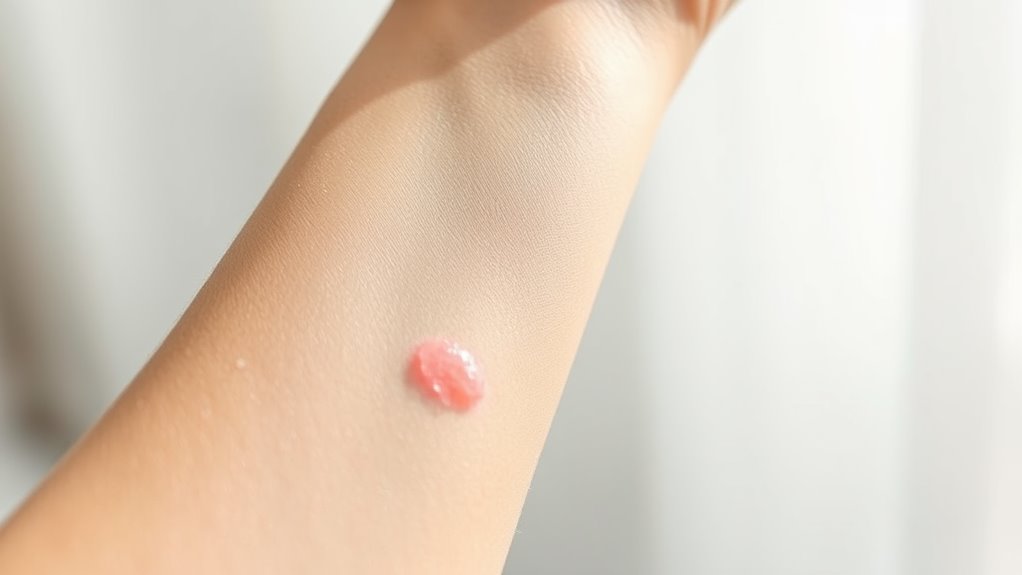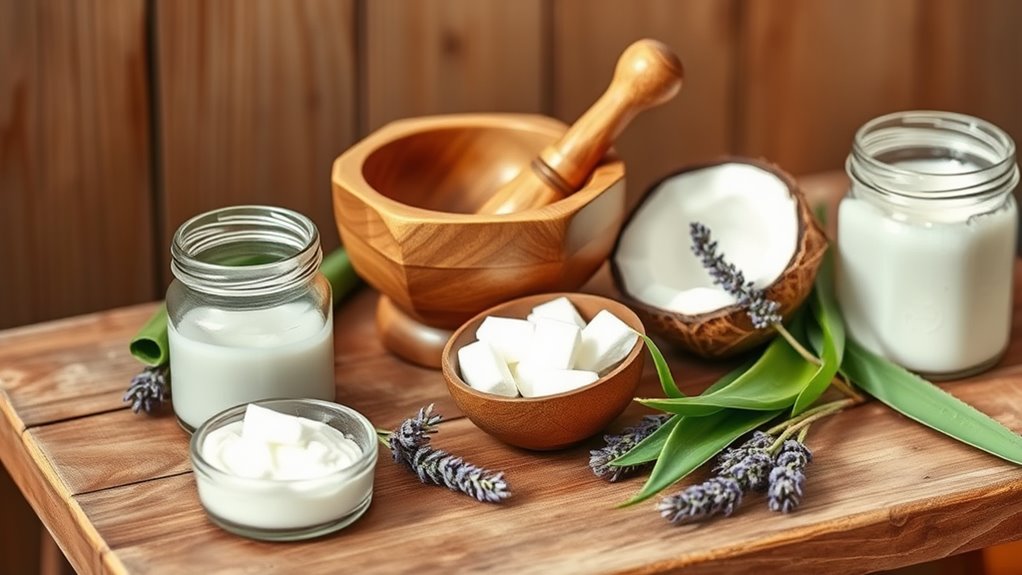Beat Eczema Flare-Ups With This Natural Moisture Trick!
Beat eczema flare-ups by mastering this natural moisture trick: identify your triggers like stress or allergens, then apply a blend of coconut oil and aloe vera to hydrate and soothe your skin. This evidence-based method strengthens your barrier, reducing inflammation and preventing cracks, as studies confirm. You’ll uncover more daily routines and long-term strategies to keep your skin healthy and resilient.
Key Takeaways
- Identify and avoid common eczema triggers like stress and allergens to minimize flare-ups.
- Use the natural moisture method with hydrating oils like coconut oil to maintain skin hydration.
- Apply soothing herbs such as aloe vera in infused blends for quick inflammation relief.
- Follow simple application steps by massaging cooled herbal mixtures into affected areas daily.
- Incorporate daily routines with gentle, pH-balanced cleansers and moisturizers for sustained skin barrier strength.
Understanding Eczema Triggers
While eczema can flare up unexpectedly, understanding its triggers empowers you to manage symptoms effectively. Common triggers include stress, allergens like pollen or dust mites, and irritants such as harsh chemicals or extreme weather, as evidenced by studies from the American Academy of Dermatology. Additionally, excessive sweating triggered by heat can worsen eczema symptoms, so consider using natural cooling methods to help maintain skin comfort.
You track these by maintaining a daily journal, noting patterns that precede flares, which helps pinpoint personal culprits. For eczema relief natural, focus on evidence-based strategies like minimizing exposure to known allergens; for instance, research shows that reducing indoor dust can significantly decrease flare frequency.
You take control by testing your environment and lifestyle, using tools like patch tests recommended by experts. This proactive approach not only prevents outbreaks but also supports your skin’s natural healing processes, fostering long-term comfort. Furthermore, to enhance your relief options, consider creating a eczema relief cream using natural ingredients for effective symptom management.
The Natural Moisture Method
Maintaining skin hydration becomes key once you’ve identified your eczema triggers, and the natural moisture method offers a simple, effective way to restore your skin’s barrier. This method draws from traditional home remedies that utilize everyday ingredients for effective eczema management.
This approach focuses on daily routines that mimic your skin’s natural processes, drawing from dermatological research showing that consistent hydration reduces inflammation and prevents cracks. You gently apply a thin layer of natural emollients, sealing in moisture to enhance the epidermal layer’s integrity.
Studies, such as those in the Journal of Dermatological Science, confirm that this method strengthens your skin’s defenses, minimizing flare-ups by maintaining optimal pH levels.
You’ll notice improved texture and resilience within weeks if you integrate it twice daily. Remember, consistency is crucial; it actively supports your body’s healing mechanisms without harsh chemicals, promoting long-term relief through evidence-backed practices.
For enhanced results, many eczema sufferers have found success with coconut oil, which leverages its anti-inflammatory properties to provide immediate itch relief.
Key Ingredients for Relief
You can enhance your eczema relief by incorporating hydrating oils and soothing herbs into your daily routine.
Hydrating oils like coconut or jojoba restore your skin’s barrier and retain essential moisture, based on studies showing their efficacy in improving hydration.
Soothing herbs such as aloe vera or chamomile calm inflammation and promote healing, offering natural support for sensitive skin.
These natural ingredients can contribute to overnight eczema relief by following proper application techniques.
Hydrating Oils
Hydrating oils play a crucial role in easing eczema symptoms by locking in moisture and soothing irritated skin. You can integrate oils like jojoba or coconut into your daily regimen to enhance skin barrier function, as research indicates they reduce transepidermal water loss.
For instance, a study in the Journal of Dermatological Science found that applying jojoba oil twice daily improved hydration levels in eczema patients, minimizing dryness and itch. Similarly, coconut oil’s fatty acids actively repair the skin’s protective layer, backed by clinical trials showing decreased inflammation.
Choose cold-pressed, organic options to avoid irritants, and always patch-test first. By massaging these oils gently into affected areas, you’ll notice quicker relief and better moisture retention, empowering you to manage flare-ups naturally.
Soothing Herbs
Several soothing herbs, such as chamomile and calendula, effectively reduce eczema inflammation and irritation by modulating the skin’s immune response. You can harness their natural properties to ease discomfort and support healing in your routine.
-
Chamomile: Backed by studies, it targets inflammation and itching, offering rapid relief for eczema-prone areas on your skin.
-
Calendula: Research shows this herb accelerates repair and minimizes redness, making it a go-to for soothing flare-ups you experience.
-
Integration tips: You blend these into creams for daily application, use in herbal baths to lock in moisture, or apply as compresses for targeted relief, as evidence supports their efficacy in symptom management.
Simple Application Steps
Three essential steps form the simple application process for this natural moisture trick to manage eczema effectively.
First, you gather your chosen soothing herbs, ensuring they’re fresh and clean, as research indicates their natural compounds reduce inflammation when properly prepared.
Next, you infuse these herbs into a base like coconut oil, gently heating the mixture to extract beneficial properties, which studies show improves skin barrier function.
Finally, you apply the cooled blend directly to affected areas using clean hands or a soft cloth, massaging in circular motions for even absorption.
This method, supported by dermatological evidence, minimizes irritation and locks in moisture without overwhelming the skin.
Daily Skin Care Routines
Although the application steps provide immediate relief, you should integrate daily skin care routines to sustain eczema management effectively. Consistent routines build a stronger skin barrier, preventing long-term irritation based on dermatological research.
To optimize your daily regimen:
-
Cleansing: Opt for a gentle, pH-balanced cleanser to wash your skin twice daily, minimizing disruption to the natural barrier and reducing inflammation, as supported by clinical studies.
-
Moisturizing: Apply a non-irritating, occlusive moisturizer after every wash to seal in hydration, helping maintain skin integrity per expert guidelines.
-
Monitoring: Regularly inspect your skin for early signs of flares and adjust products accordingly, drawing from evidence that proactive observation enhances control.
Benefits of Hydration Techniques
Building on your daily skin care routines, you’ll gain substantial benefits from hydration techniques that research supports for eczema relief.
These methods, like using humectants or occlusives, actively restore your skin’s moisture barrier, reducing transepidermal water loss as shown in clinical studies.
You’ll find that proper hydration minimizes inflammation, easing the itch-scratch cycle that worsens eczema.
Evidence from dermatological research highlights how it promotes epidermal repair, leading to fewer micro-cracks and enhanced resilience against irritants.
By maintaining optimal hydration levels, you can achieve smoother skin texture and faster recovery from flare-ups, as supported by trials in journals like the Journal of Investigative Dermatology.
Ultimately, these techniques deliver sustained symptom control, improving your skin’s overall integrity.
Lifestyle Tips for Prevention
Preventing eczema flare-ups starts with simple, evidence-backed lifestyle adjustments that you can easily incorporate into your daily routine.
These strategies target common triggers and bolster your skin’s natural defenses, drawing from dermatological research. By making proactive changes, you’ll minimize outbreaks effectively.
To implement these tips, follow this structured approach:
-
Identify and avoid triggers: Pinpoint irritants like harsh fabrics or allergens through a journal, as clinical studies show this reduces flare frequency by up to 50%.
-
Adopt a gentle routine****: Use fragrance-free products and limit hot showers, supported by evidence that this preserves the skin barrier and prevents moisture loss.
-
Maintain a balanced diet*: Incorporate *omega-3-rich foods and antioxidants, with research indicating they lower inflammation and support eczema prevention.
Additionally, supporting gut health with anti-inflammatory foods can help reduce systemic inflammation and potentially ease eczema symptoms.
Maintaining Long-Term Skin Health
Achieving long-term skin health means you regularly reinforce your skin’s barrier and adapt strategies as needed, drawing from ongoing research in dermatology.
For example, you incorporate evidence-based habits like daily application of natural emollients, which studies show strengthen the lipid layer and lock in moisture. You monitor your diet for anti-inflammatory foods, such as fatty fish and leafy greens, backed by clinical trials that link them to lower eczema risk. Additionally, integrating turmeric into your meals can leverage its anti-inflammatory properties to further support skin wellness.
Stay vigilant by tracking triggers like stress or allergens, adjusting routines based on personal responses. Hydration remains key; you drink ample water and use gentle cleansers to prevent dryness.
Regular dermatologist consultations help you refine these practices, ensuring sustained barrier function and fewer flare-ups, as supported by long-term observational data.
Ultimately, you build resilience through consistent, informed choices.
Furthermore, incorporating baking soda into your routine, as part of natural teeth whitening methods, could provide additional anti-inflammatory support for your skin.





